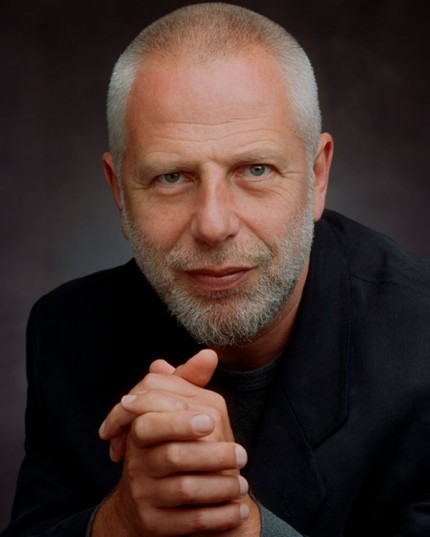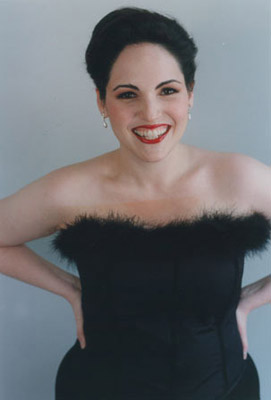Feltsman’s stylish edge provides the high point in MOB’s mixed evening of Mozart

Vladimir Feltsman is one of those rare musicians who seems able to tackle almost any repertoire with convincing results. Possessing a formidable technical arsenal, Feltsman made his name in his native Russia as a purveyor of big Romantic concertos, yet in the intervening years has also shown himself a poetic and equally assured interpreter of music ranging from Bach to Chopin and Schumann.
One doesn’t often get the opportunity to hear Feltsman in Mozart, yet Friday night at the Harris Theater he showed himself an individual and stylish solo protagonist in Music of the Baroque’s all-Mozart program led by Jane Glover. The program will be repeated Sunday night in Skokie on Mozart’s 257th birthday.
Feltsman chose an apt vehicle for his musical temperament with the Piano Concerto No. 24 in C minor. Only one of two Mozart concertos in a minor key, K.491 is scored for the largest forces of any Mozart concerto, including oboes, clarinets, trumpets and timpani. The malevolent opening with its stabbing accents and roiling drama seems to anticipate the dark landscape of Don Giovanni, which would be completed the following year.
Feltsman had the full measure of this music and, even with a couple digital slips, was an individual and supremely stylish solo protagonist. The Russian pianist kept his playing within Classical parameters, yet his boldly projected keyboard work had an extra edgy bravura that added apt bite to this music. He also showed ingenuity by playing a first-movement cadenza by Alfred Schnittke that artfully acknowledged the drama and forward-looking style of the concerto, taking the soloist to Beethoven and beyond, without sounding anachronistic.
Feltsman and Glover were closely knit partners throughout, the pianist’s supple, poised simplicity in the reverie of the Larghetto, gently echoed by the woodwinds, like chamber music writ large. In the finale, Feltsman’s nervy style brought out the restless, unsettled tensions with full force, backed by superb playing by Glover and the orchestra in support. Feltsman received a deservedly strong ovation, which he was quick to graciously share with the orchestra’s winds.
The evening’s other soloist, Arianna Zukerman, who opened each half of the evening, provided more mixed rewards.

The soprano, daughter of violinist-conductor Pinchas Zukerman, possesses a light, attractive enough voice, yet one that is rather wan and narrow in coloring. In Mozart’s celebrated early motet, Exsultate, jubilate, Zukerman brought some expressive poise to the lyrical central section. Yet her chest voice is weak and her tone tends to thin out as the notes ascend, Zukerman negotiating the coloratura runs of the outer movements with more caution than agility.
Whether her limitations are due to a problematic instrument or unschooled technique is hard to say. Whatever the case, the singer was clearly overparted, at times painfully so, in Mozart’s brilliant yet demanding showpiece Ch’io mi scordi di te? Feltsman showed himself a game colleague, taking the obbligato piano part in this concert aria with aplomb—a part likely played by Mozart himself in a farewell concert for the English soprano Nancy Storace, who created the role of Susanna in Le nozze di Figaro.
The evening concluded with the Symphony No. 39 in E flat, the first of Mozart’s remarkable trio of final symphonies, last played by Glover and MOB just a year and a half ago. (With all the Baroque repertoire left unexplored in Chicago, is it really necessary to repeat Mozart’s most-played symphonies this frequently?)
Glover’s bona fides in Mozart are long established and justly feted, yet the E flat symphony is a work that remains somewhat elusive for her. The slow introduction had ample breadth and the ensuing Allegro moved with worthy energy, followed by a stately and flowing Andante, and the Minuet taken at a fast clip.
Yet the performance felt overall a size too small and light of texture for the scale of this late work. The finale is one of Mozart’s most joyous inspirations and proved decidedly anticlimactic Friday night, lacking fizz and adrenaline, with the straight-faced approach missing the music’s quirky wit. The repeated ensemble lapses from the back violin stands didn’t help.
The program will be repeated 7:30 p.m. at the North Shore Center for the Performing Arts in Skokie. baroque.org; 312-551-1514.
Posted in Performances





Posted Jan 26, 2013 at 8:22 pm by Paul
Did we attend the same concert?? This performance is illustrative of why I cancelled by season subscription to MOB two years ago. I have heard high school orchestras with better intonation. Glover is a well-respected academic, however she is not a conductor. Every piece lacked cohesion. Feltsman and the orchestra were in different universes. The third movement of the concerto was interminable and we should have left after intermission, though I was hopeing the 39th would have redeemed the evening. It only provided more misery. The tickets to the concert said, “A Mozart Celebration”. Actually, it was a Mozart degradation.
Posted Jan 27, 2013 at 1:53 am by George
I was very surprised to read this when in my ears the highlight of the concert was Arianna Zukerman’s accounts of these Mozart vocal works. There was nothing narrow or light about her voice, which filled the Harris theater with glowing color, and she carried with her interpretations the Mozartian spirit of delight. She is undoubtedly a great talent and it was clear the audience reacted to her performance with true enthusiasm. I wish we had heard more of her through the evening.
Posted Feb 07, 2013 at 6:46 pm by Roland Buck
“With all the Baroque repertoire left unexplored in Chicago, is it really necessary to repeat Mozart’s most-played symphonies this frequently?”
RIGHT ON! The so-called “Music of the Baroque” devotes about half of its resources to performing music that is NOT baroque music, while (except in the Brass and Choral concert at Christmas) works of great baroque composers like Monteverdi, Schuetz, Charpantier, and Praetorius remain unperformed.
If they insist on perfoming Mozart they should at least attempt to permorm it like it would have been performed in Mozart’s time and use an 18th century style fortepiano instead of a modern piano.